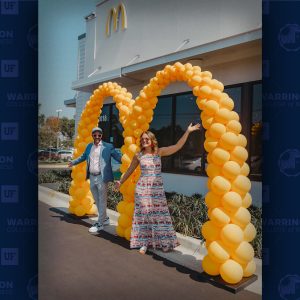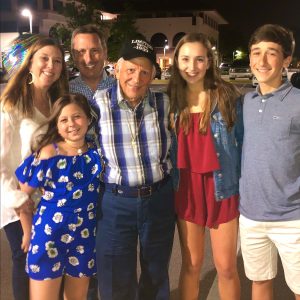Times Square Gators: Warrington entrepreneurs in the big city
When Business Gators leave The Swamp, they embark on a journey to make their mark on the world. Many step into the spotlight in the city that never sleeps: New York City.
Bharani Rajakumar, Kathryn Carpenter and Jim Lewis are just three of many Warrington alumni who have flourished in the big city. Read how Rajakumar, Carpenter and Lewis found success in New York City.
Bharani Rajakumar, BSBA ’04, CEO of Transfr
Bharani Rajakumar (BSBA ’04) grew up in Gainesville where he watched his parents raise a family of four on $35,000 a year. At sixteen, he got his first job to help support them.
When it came time to apply for college, he was drawn to study finance at the University of Florida.
“I was curious why everyone seemed to have money except us,” he said. “I didn’t consider money a resource, and I didn’t really understand how it worked.”
While at the University of Florida, Rajakumar applied for a scholarship to study abroad which changed his life.
“I lived in France for a year, learned to speak the language and learned how to survive on my own without the safety and structure of familiar faces,” he said.
This experience taught him the importance of adaptability and resilience.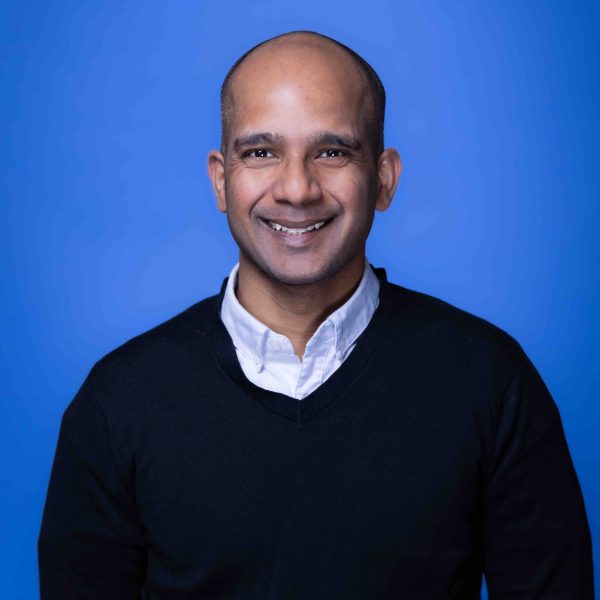
While studying at the Warrington College of Business, he learned that New York City was one of the top places for finance professionals, and with the new-found confidence from his study abroad experience, decided to move there after college.
“The Warrington College of Business provided a strong foundation in strategic thinking, leadership and the fundamentals of economics,” he said. “Knowledge and skills that have been essential to my career.”
Rajakumar worked as an operations analyst for Lehman Brothers for three years before transitioning to Neuberger Behrman, where he served as a senior operations analyst.
“After working in the financial services industry for five years I was amazed at the resources that existed in America,” he said.
Rajakumar was motivated to find a way to give others access to the opportunities he had. That’s when he founded LearnBop, an automated tutoring software for teaching math through step-by-step problem-solving. In 2017, the company was acquired by K12 Inc.
“After it was acquired, I felt even more fortunate and I needed a way to give more,” Rajakumar explained. He thought: “What could be more powerful than helping someone learn math?”
That’s when he turned to Transfr, a company that uses virtual reality to bring hands-on training to individuals who might not have access to traditional educational pathways.
Rajakumar has been the CEO of Transfr for over seven years.
As CEO, Rajakumar focuses on scaling the company’s impact by driving innovation and forging strategic partnerships with businesses, workforce development agencies and educational institutions. He’s passionate about breaking down barriers to opportunities.
“Every day involves working with our team to refine our training programs, expand our reach to more learners and ensure that our solutions remain aligned with real workforce needs,” he said. “At Transfr, we’re democratizing skill development, making it possible for anyone—regardless of background—to learn, grow and succeed in well-paying careers.”
Last year, Rajakumar was recognized as the EY Entrepreneur of the Year 2024 New York winner. Furthermore, Transfr placed second in the Gator 100, in the top 110 of the Inc5000 and in the Fast Company’s top 50 ideas in the world ranking.
Rajakumar lives by the Mahatma Gandhi quote: “The best way to find yourself is to lose yourself in the service of others.”
“Service gave me purpose, clarity, and eventually, results,” he said.
Rajakumar also encourages students to “bet on the future.”
“Leaving a stable job in finance to start a company in one of the most complex and bureaucratic industries in America wasn’t easy,” he said, “But I felt a deep, almost unshakeable responsibility to try.”
With a fast-changing world, he wants students to not just prepare for the jobs that exist today, but to build skills that can make them adaptable for the careers of tomorrow.
“Embrace lifelong learning, take calculated risks and focus on solving meaningful problems—that’s where real success lies.”
Kathryn Carpenter, BSBA ’09, Founder and CEO of Cecilia
For Kathryn Carpenter (BSBA’09), sustainability was more than just a passion— it was a driving force in her career.
“Even as a child I loved nature and our environment,” she said.
By studying finance at the University of Florida’s Warrington College of Business, Carpenter learned how business could be a powerful tool for change.
“I liked the entrepreneurial side of business and how it was applicable across industries, whether it be engineering, science, economics or finance.”
While at UF, Carpenter was involved with Students in Free Enterprise, now known as the Gator Hatchery program.
She interned every summer: first with the British Parliament and with DLA Piper, then with Bank of America.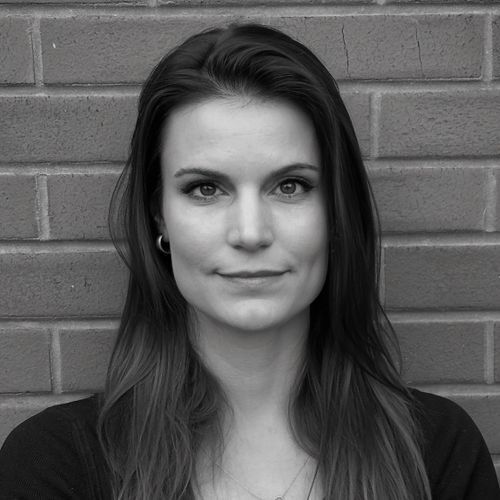
“Through my internships, I saw the real-world application,” she said. “Translating that to and from the classroom was the best learning experience.”
Carpenter’s pivotal moment came through a Warrington career fair where she was recruited by Bank of America for a summer internship in Boston before her senior year. There, Carpenter prioritized sitting down or having coffee with as many professionals possible across different segments, which sparked her interest in investment banking.
“Meeting those people and having that networking opportunity away from home in a corporate setting was one of those maturing experiences of my career,” she said.
After graduating, she landed a role as an investment banking analyst for Wells Fargo but soon gravitated toward private equity.
“I interviewed with the Clean Energy and Infrastructure team at Capital Dynamics, an up-and-coming renewable energy private equity fund and joined their team as the second U.S. hire,” she explained. “I was passionate about the sustainability angle, which wasn’t a common career trajectory then.”
After nearly a decade at Capital Dynamics, rising to director, Carpenter had another question in the back of her mind: “What’s at the forefront of a major societal problem that doesn’t have a technological or bankable technology solution?”
For Carpenter, the answer to that was plastic waste.
While individual recycling accounts for 10% of the world’s plastic, 90% of plastic is still not recycled.
“I thought: I can fix a symptom, which is just me recycling the plastic I use, or I could go even further and create a new technology that can capture the rest of the waste that I don’t have access to.”
That idea led Carpenter to form Cecilia in 2021, a company that transforms plastic waste into valuable carbon materials and clean hydrogen, tackling pollution head-on.
Carpenter initially self-funded her company and recruited a team at the Department of Energy’s National Energy Technology Lab—led by Dr. Christina Wildfire—to explore the development of new technology. After a successful co-invention with NETL, Cecilia was officially spun out as a company, where Carpenter recruited a team of chemical technicians, process engineers and a chief scientist.
“As a founder, you wear pretty much every hat in the organization,” she explained. “But that doesn’t always translate to a single person doing everything; a big priority of mine has been to make sure that we have the right people and the right team in the right seat of the rocket to launch this startup.”
Since 2022, Cecilia has secured three commercialized contracts from NASA.
“NASA needs valuable in-situ resources in space, something they can achieve by harvesting hydrocarbons from their crew mission trash, so they need a modular reactor that’s energy efficient and can create high-value products from the mission trash that they’re already launching as payload into space.”
Cecilia has received the E8 Angels’ Decarbon8 Investment Award and received the New Jersey Commission on Science Innovation and Technology Clean Tech Pilot Demonstration Grant. Cecilia was also recognized in the NJBiz 2025 Startup list, Business Insider and Yahoo Finance.
For students hoping to make their mark, Carpenter’s biggest piece of advice is to stay curious.
“You never know where life is going to lead you, so explore every road and leave the door open for serendipity.”
Jim Lewis, BSBA ’90, Founder and CEO of Enhanced Retail Solutions
Lewis (BSBA ’90) knew he wanted to go to the University of Florida, following in his older sister’s Gator footsteps.
Around junior year he started actively looking to take advantage of the opportunities the college provided to develop a plan for his professional future.
“Opportunities don’t always just come to you,” he said. “You have to be the kind of person [that seeks them out].”
Between the summer of his junior and senior years, he interned for JCPenney. Upon graduation, he was offered a job with the company in South Florida, and after a few short years was promoted to their corporate office in Texas.
For 10 years, Lewis served as a buyer where he worked with suppliers that also sold to other retailers. As the industry shifted, suppliers took on more responsibility in the buying and allocation process— a core competency they lacked.
That’s when Lewis began to develop his business idea.
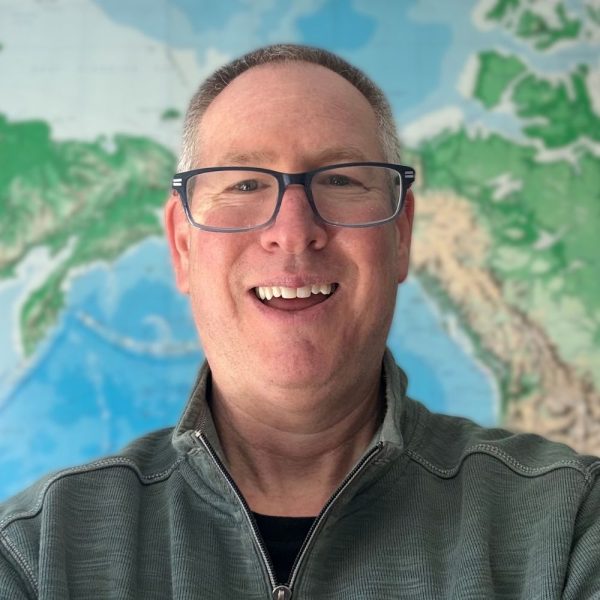
The idea gnawed at him. He knew he could make an impact in the industry but also struggled to leave the security of his position.
Lewis eventually took a leap of faith and walked away from his job at JCPenney to found Enhanced Retail Solutions. ERS is a service-oriented business that has helped retailers, suppliers and brands turn their inventory faster, forecast more accurately and provide deeper visibility to sales for over 20 years now.
“At the beginning I did everything, it was kind of a one-man show,” Lewis said. “I had to learn every aspect of how to deal with the business” including sales, marketing, innovating and finding capital.
Now, with strong teams in the U.S. and India, Lewis can focus more on the products and motivating his team to continue being a part of something great.
“Even though we’re 22 years old as a company, we still have a startup mentality,” Lewis said. “We all work as if this thing started yesterday, and as if it could go away tomorrow. The sky’s the limit and for me, that’s motivation to build something new.”
While reflecting on his time at the Warrington College of Business, Lewis believes “it really was the school and those professors that somehow saw something in me and challenged me [to strive for more].”
He was a part of the Miller Retail Center when it was first formed in 1988 by former JCPenney Vice Chairman and UF Warrington alumnus, David Miller (BSBA ’51). At the time, he assisted Dr. Barton Weitz in editing the Retailing Management textbook that is still used in Introduction to Retail Systems Management. He keeps a copy of the first edition on a shelf in his office.
“[Dr. Weitz] was one of those inspiring people that had a major impact on my life,” he said.
Through the Center, Lewis found his JCPenney internship and made connections that were vital to his success.
At his company now, Lewis only takes Gators. He comes down to The Swamp every February to recruit and give students an opportunity to learn and grow, “like I had.”
He encourages students to develop their soft skills like public speaking and to be mindful of how they interact with potential employers. Even something small like ensuring their first and last names are part of the filenames of cover letters and resumes they share.
“All those little things add up to who you are,” he said.
He also encourages students to leave their comfort zone.
“It’s easy to just stay and do what you know. It’s hard to take a leap and try something different.”



